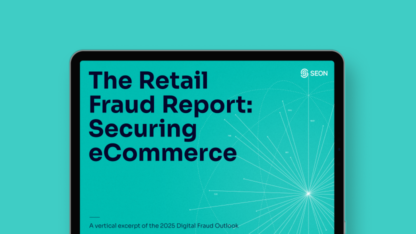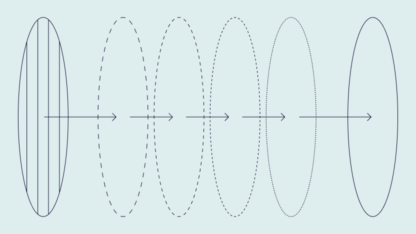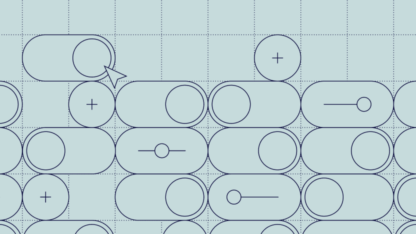Fraud fighters have traditionally abstained from discussing live cases of fraud rings, not just to avoid falling awry to compliance issues but due to the fear of accidentally equipping fraudsters with the inside know-how. This, however, seems to have had the opposite effect, leaving businesses ill-prepared to understand the huge ramifications fraud rings have on the business bottom line and the necessity of implementing the right measures to protect their platform.
High-level fraudsters dedicate time and resources to analyzing weak spots in fraud defenses and circumvent customized protections set up by businesses to attain a higher bounty – a bounty that goes up when they make a smooth getaway! These groups qualify as masters of their ‘craft’ and are known to cause businesses substantial financial loss.
With Fintech and iGaming considered high-risk environments, find out what actions you can take to minimise the risk of becoming a target. In this session, we dissect fraud ring cases and provide guidance on how your fraud team can rise to the challenge and dismantle sophisticated attacks for good.
Agenda
- Backstories and intros
- From intuition to procedure
- Best practices & tools to use
- Measuring loss and ROI
- Different verticals & risks
- What makes a high-risk target
Speakers
- Bogdan Ursu, KYC and Fraud Team Leader, Casumo
- Juris Rieksts-Riekstinš, Head of Risk, FairMoney
The host is our own Senior Content Manager and Ex-Fraud Analyst, Gergo Varga.
Key takeaways
Sensitive Nature of Sharing Information
Whilst it’s important, we need to be careful as you never know exactly how involved they are in this business so I believe it is better to keep secrets as this is how you remain a step ahead. If fraudsters know the tools you use and what you’re looking for, they will abuse confidential information. –
There’s a real difficulty for our industry to discuss actual fraud rings because of the sensitive nature of the information. Plus fraudsters are advanced so they might be here today to understand how we work but there is an old-school mentality who would rather not share anti-fraud method as by not reporting on a fraud ring, they think they’ll go to the competitor. With the amount of sharing fraudsters do online, it’s asymmetrical information warfare. – Gergo Varga.
I agree that confidentiality is important but sharing knowledge is important as fraudsters are incredibly creative and share their abuse techniques in forums. Of course, sharing the exact methods you use is perhaps too sensitive but general sharing of information and the types of fraud we’re facing is important to help smaller businesses. Through collaboration, we can beat the fraudsters. – Juris Rieksts-Riekstinš.
Industry Insights
With online lending, the difference between fraudsters and defaulters is not that simple to spot as both of them are taking a loan and not paying it back. Three key points to differentiate would include the intentional manipulation of the documents/data, acting on behalf of someone else, without or without their knowledge and their hungriness, as once a fraudster identifies a loophole, he’ll try to repeat the action to maximize his gain and squeeze as much as out of your company as possible. – Juris Rieksts-Riekstinš.
Juris then shared some details about his experiences with organized fraud operations specifically in Nigeria including how they used agents to coerce people to help them abuse loan applications (12:15m on the video recording).
From a casino perspective, we were one of the most targeted industries since the start of COVID. The most pressing issues in the industry would be bonus abuse and credit card fraud and both are able to inflict serious financial losses if they’re not dealt with quickly. Ultimately all fraud rings have one thing in common – they are working as a small company to maximize profits out of resources they have. Since they only have limited resources, fraudsters will leave behind some sort of pattern of which you and your team can uncover so much information such as the core methods of fraud, the limitations of the tools you’re working with, and where you need to adapt your defenses. There is no perfect anti-fraud system but knowing the weaknesses of your system gives your more of an inclination as to where the loopholes could be. – Bogdan Ursu.
Fraudsters Next Move
If we consider the developments of deepfakes, generating more complete synthetic identities could be something to keep an eye out. Biometrics will no doubt become more of a blocker for fraudsters, but if they are able to fool a company into thinking you are a person that doesn’t actually exist then they can bypass some biometric protections. Also, I think the incentivization of fraud in countries less developed will continue to grow, such as to the Nigeria story I described earlier. – Juris Rieksts-Riekstinš.
I am not sure if there is going to be a specific new technique as fraudsters are smart so their main points of variation will be how they adapt old methods. Fraudsters are super resourceful and can come up with new ideas with ease. Researching Facebook groups, using third-party tools, and checking online forums can help you learn about the current trends. They are openly sharing their knowledge so while it’s a lot of work, you can understand the mindset and techniques. As well, for operators, it’s vital to have checks in place before KYC, and even then once a person has passed KYC doesn’t mean this person is now an honest customer. – Bogdan Ursu.







